Madeline Usher and The Fall from the Patriarchal Ladder [Fatal Femmes]

When most people think of Edgar Allan Poe’s female characters, they remember Lenore or the dearly departed Annabel Lee, lost lovers who haunt two of Poe’s most heartbreaking poems. The name Madeline Usher doesn’t usually spring to mind. This doomed character lurks in the background of Poe’s haunting “The Fall of the House of Usher,” a short story mostly concerned with her brother’s response to her death.
Mike Flanagan pulls Madeline (Mary McDonnell, Lulu Wilson, Willa Fitzgerald) to the forefront of his series adaptation of the same name which weaves together a myriad of Poe’s poems and stories. Following the ultra-wealthy Usher family, Flanagan also centers Madeline’s brother Roderick (Bruce Greenwood, Graham Verchere, Zach Gilford), but positions his sister on equal footing in the struggle to protect the family legacy. Poe’s version of the character is little more than a specter brought to life by a haunting death and impossible resurrection. But in Flanagan’s The Fall of the House of Usher, Madeline is a force of nature.
Driven, intelligent, and devious, this powerhouse of a woman will stop at nothing to obtain the position she wants and the power she believes she deserves.
Her Story
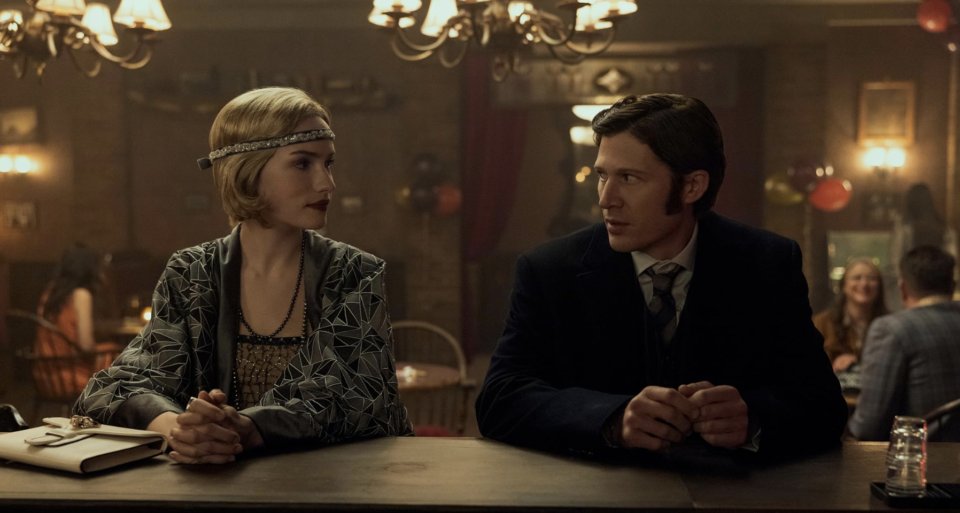
Poe’s Madeline is one of the author’s most mysterious characters. Her story is told through the eyes of a family friend who travels to the crumbling Usher home on the eve of her death. This unnamed narrator spends several days comforting Roderick Usher as he mourns the impending end of his family line. When his sister does eventually pass away, the two grieving men marvel at her lifelike appearance as they entomb her in the family crypt. Shortly after the burial, she bursts from the grave and brings the Usher house down around her as a thunderstorm rages in the skies above.
Flanagan reimagines this short story to introduce his twins in his version of The Fall of the House of Usher. His version of this brother-sister duo watches in horror as their recently deceased mother rises from the grave during a heavy storm. Hellbent on revenge, she strangles the father of her children as punishment for refusing to acknowledge his parentage. Madeline has always hated this man and barely manages to hide her resentment in his presence. It seems his dismissal and her mother’s response cause deep emotional scars and she grows up vowing never to let a man control her destiny.
We get to know Madeline in parallel timelines, alternating between the present day and a series of flashbacks to 1979. She guides young Roderick as he works his way up from the mailroom of Fortunato Pharmaceuticals, the company built by their illegitimate father. This involves winning the trust of current CEO Rufus Griswold (Michael Trucco) while simultaneously betraying an earnest prosecutor named Auguste Dupin (Carl Lumbly, Malcolm Goodwin). Playing these two men against each other, she lays out a strategy designed to raise Roderick’s value in the growing company. After murdering Griswold, she parlays a chance meeting with a mysterious woman named Verna (Carla Gugino) and rises to the Fortunato boardroom as COO.
In the present timeline of The Fall of the House of Usher, this lucrative company finds itself under a microscope. After decades of shady business dealings, Dupin has indicted Roderick and the corporation with a number of charges involving a dangerous drug called Ligadone. When rumors that a member of the sprawling Usher family has been working with Dupin, Madeline vows to find the traitor and tear them apart. As Roderick’s six children begin to die, she remembers the terms of an unbelievable deal she and Roderick made with Verna and a horrific payment that has finally come due.
Her Victim
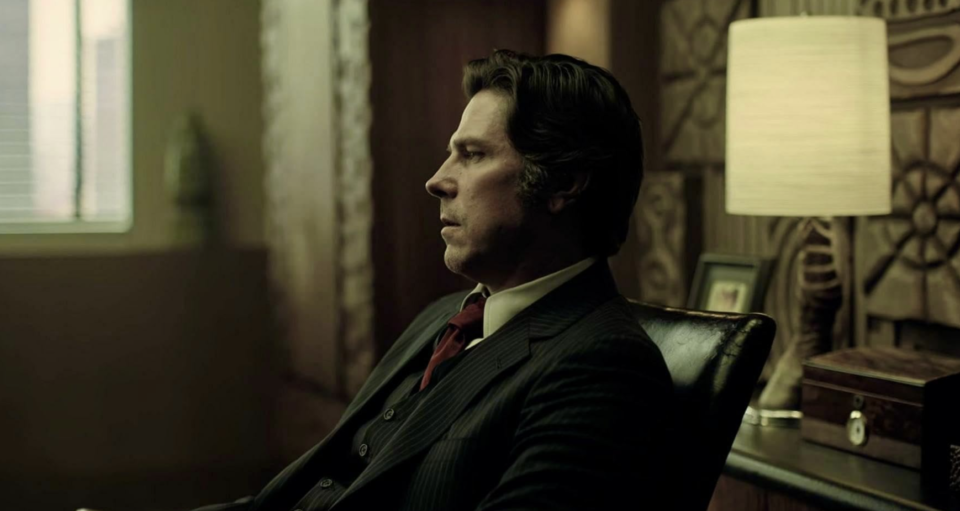
Flanagan’s final episode of The Fall of The House Of Usher not only reveals the terms of this agreement but also the truth about Griswold’s nasty fate. By forging Roderick’s name to a series of Fortunato consent forms, Griswold has essentially forced his young employee to cover for his illegal actions or give up his future in the industry. Guided by Madeline, Roderick plays along and saves the company from prosecution while secretly devising a plan for revenge. At a New Year’s Eve party shortly after the trial, the twins share drinks with the deceitful Griswold then lure him into the basement of corporate headquarters. After drugging his sherry, they chain him to a wall and then begin laying bricks to seal him into the construction site. They taunt the terrified man while building the final wall of his makeshift tomb then leave him alone in the dark to die.
Flanagan frames The Fall of The House Of Usher with a candlelit conversation between Roderick and Dupin in which the dying billionaire unburdens his conscience by confessing his many crimes. Though Griswold’s entombment is the only overt murder Roderick describes, the practiced ease with which family lawyer Arthur Pym (Mark Hamill) attempts to neutralize Verna implies a well-worn pattern of targeted killings. It’s easy to see Madeline and Roderick simply ordering the deaths of anyone who threatens to impede their rise to power.
These intentional murders pale in comparison to the volume of deaths caused by their miracle drug, Ligadone. Hours before his death, Verna meets Roderick in the Fortunato boardroom and confronts him with the true cost of his rise to power. He watches as bodies rain from the sky, each one representing a life lost to the resulting opioid epidemic. This carnage is the true Usher legacy and though Madeline is not present in this scene, each body could easily be laid at her own feet. She and Roderick have been in lockstep since childhood and share their crimes along with their extravagant wealth.
The only deaths that cannot be ascribed to Madeline are the grisly ends of the Usher children. The consequences of Verna’s deal involve the ending of the Usher clan and Madeline has steadfastly remained childless. She is the beginning and end of her own family line, unlike her brother who takes his six children and granddaughter with him when he dies. With the end in sight, Roderick poisons his sister and then attempts to resurrect her with ancient Egyptian artifacts. As in Poe’s story, she bursts from her grave and kills Roderick as the Usher family home crashes down around them.
Her Weapon
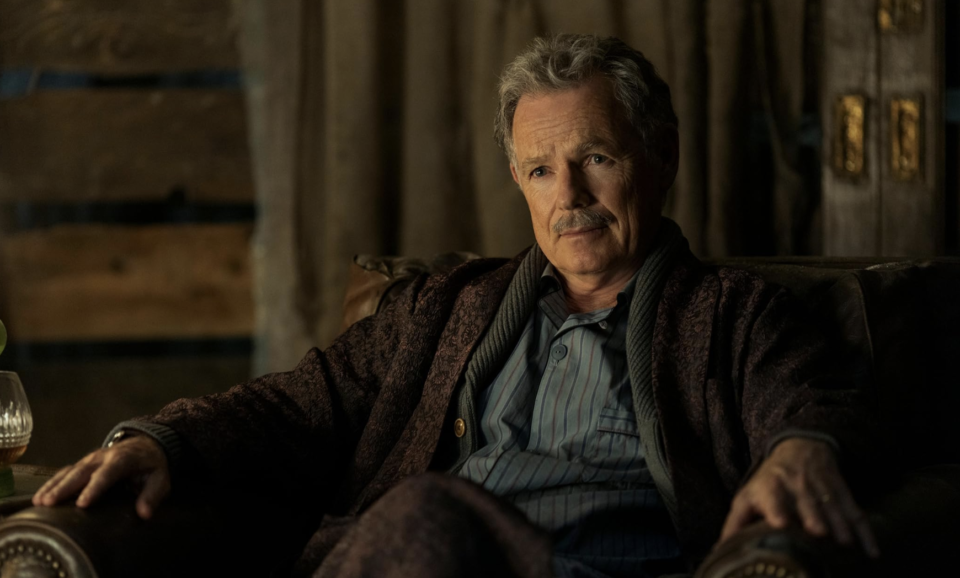
Thrust into the foster system as a child, Madeline has learned to be self-reliant. Roderick calls her a “four or five in a generation” genius and it seems intelligence and determination are her strongest weapons. She possesses an innate knack for deconstructing the motivations of others and the ability to navigate complex interpersonal situations. After a single meeting with Griswold, she sizes the man up and devises a complicated plan for Roderick to exploit his ego. Always thinking several steps ahead, she accepts insults and propositions from this small-minded man and resolves to wait until the perfect moment to exact her devious revenge.
Madeline may not be afraid to take matters into her own hands, but she frequently operates through the actions of her brother. Though she clearly loves Roderick—he may be the only person on earth she truly loves—she constantly tasks him with acting on her behalf. It’s likely she understands that she exists in a man’s world and rather than try to change that dynamic, she exploits it by convincing a powerful man to do her bidding. This not only proves effective but insulates Madeline from any negative consequences. Roderick takes the risk of stealing Fortunato documents and he is the one arrested for perjury as a result of her master plan. The downside is that she only gains power in Roderick’s name and rises through the company at his discretion.
Her Motive
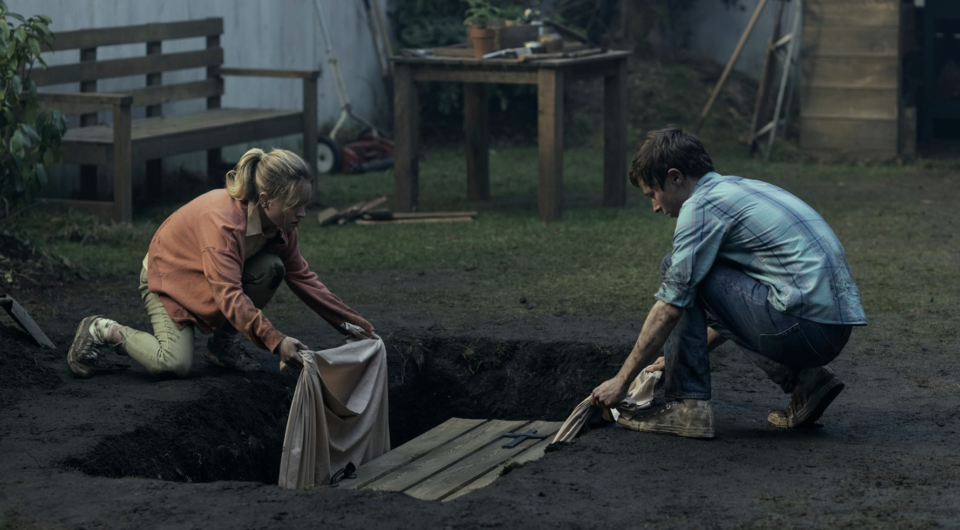
In a private conversation with Verna on that fateful New Year’s Eve, Madeline confesses the two things she wants most in life: control of her own destiny and to live forever. Given her traumatic childhood, this is perhaps understandable. After hiding her existence from her wretched father, Madeline must watch as her mother slowly dies from a painful disease. It’s no wonder she spends the rest of her life trying to conquer men and death. She accomplishes her second objective by developing algorithms designed to replicate consciousness. Her body may die, but a recreation of her intelligence will theoretically live on in a machine capable of exerting her will. Unfortunately, Madeline doesn’t live long enough to work the kinks out of this system and her Beta test winds up becoming a heartbreaking reminder of the humanity she’s traded away.
The first part of her life’s objective proves more elusive. Madeline learns to manipulate the men around her and uses them to gain the power she craves. She allows them to see her as subservient while waiting in the shadows for the perfect moment to strike. After meeting the boorish Griswold, she submits to his insults and attempts at exploitation, knowing that she will be working behind the scenes to take that power back. One of the final bricks she lays in the wall that will seal his fate contains the words “you’re so small,” a devastating reminder that he tried to diminish her power but turned out to be the weak one all along.
This insult stems from a conversation she shares with Roderick’s wife Annabel Lee. After the disastrous court appearance that will lead to the dissolution of her brother’s marriage, she’s shocked that Annabel would expect her husband to sacrifice material gain for ethical beliefs. Viewing the world through transactional terms, Madeline believes Annabel has been manipulating Roderick to secure children and a comfortable home. Though not her own preference, Madeline refers to this lifestyle as an “angle” and believes her sister-in-law also plans to ride Roderick’s coattails to wealth and power. She can’t believe Annabel would prefer a virtuous pauper to a rich, but corrupt man.
Annabel calls Madeline “small” for failing to see that true wealth comes from love and virtue. Possibly caught off guard, she coldly quips that Annabel’s baby is crying, hinting that the young mother has sacrificed her own power in service of a family. This rejection of love is the one miscalculation that keeps Madeline from truly attaining her goals. She fails to see that the only true way to live forever lies in the legacy passed down through a loving family, something she has denied herself in the quest for material gain.
Her Legacy
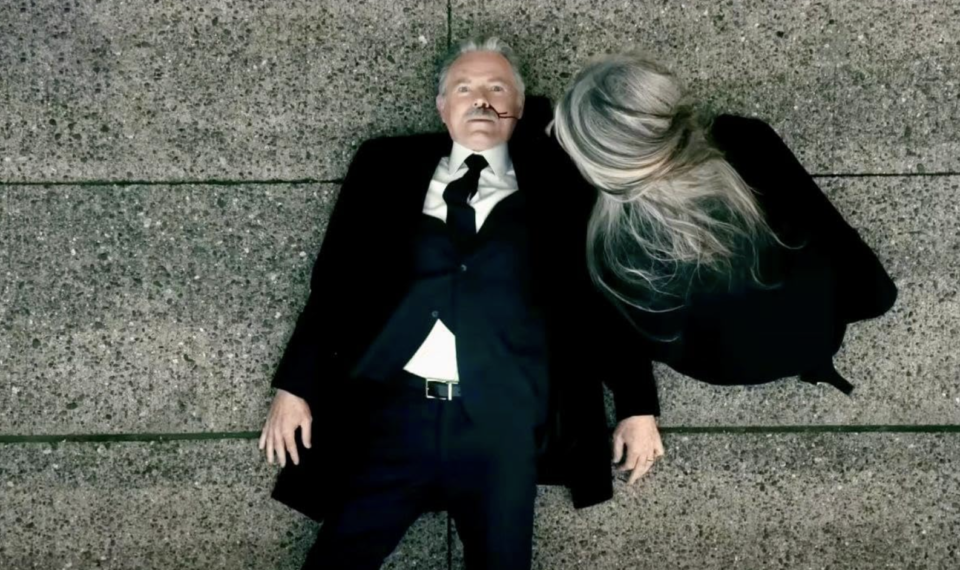
Flangan’s moving finale reveals the deal that ultimately spells the Usher family’s undoing. Having just killed Griswold, Roderick and Madeline establish an alibi at a mysterious bar tended by Verna. Though we never find out exactly who this woman is or from where she draws her power, Verna has the ability to give them a lifetime of luxury. The only catch is that before Roderick passes away, they must watch it all fall apart. Having entered the world together, they will go out the same way and Roderick’s impending death will also put an end to Madeline’s life.
While certainly poetic, this presents an interesting wrinkle in Verna’s equation. Though both siblings agree to the deal on equal terms, Roderick is the clear principal. The arrangement will last for the remainder of HIS natural life. We have no idea when Madeline’s life would naturally end, but it seems she has committed to dying on her brother’s terms. Attempting to outplay this bargain, she convinces her brother to overdose on Ligadone, only to have Verna swoop in and revive him. Madeline has no choice but to die at her brother’s hands, the last on a long list of family members destroyed by his own selfishness.
For a woman dedicated to overthrowing male control, this feels like a shocking oversight. It seems Verna has been playing a long game of her own. She has allowed Madeline to believe she has power only to rip it all away with her brother’s death. By accepting the deal and tying her fate to a man, Madeline has given up her ability to exist without him. She must watch everything she’s spent her life building torn away at the natural ending of his life, not hers. How much more could she have accomplished without this arbitrary limitation? Having placed her fate in the hands of a man with slightly more power, she has ceded control of the only thing that truly matters.
Madeline’s fate in The Fall of The House Of Usher may seem familiar to any woman who has tried to succeed in a male-dominated world. Verna automatically turns to Roderick as the bearer of the deal’s terms because that is the accepted order and Madeline does not even think to question it. She does not ask to be CEO, but COO, the second position in this lucrative company. Is it possible that part of her believes Anabel’s assertion that she is ultimately too small to lead? Does she secretly believe that she will never be able to reach the pinnacle of power and resigns herself to getting as close as she possibly can?
Like so many women content to climb a patriarchal ladder, she has improved her own position by stepping on other women knowing she will never rise all the way to the top. The true tragedy is that she has failed to use her massive intelligence and drive to change the world for others. Her example will live forever as a cautionary tale, not one of positive inspiration. Despite her extraordinary life, Madeline has only succeeded in reifying the patriarchal order into which she was born.
Categorized:Editorials

